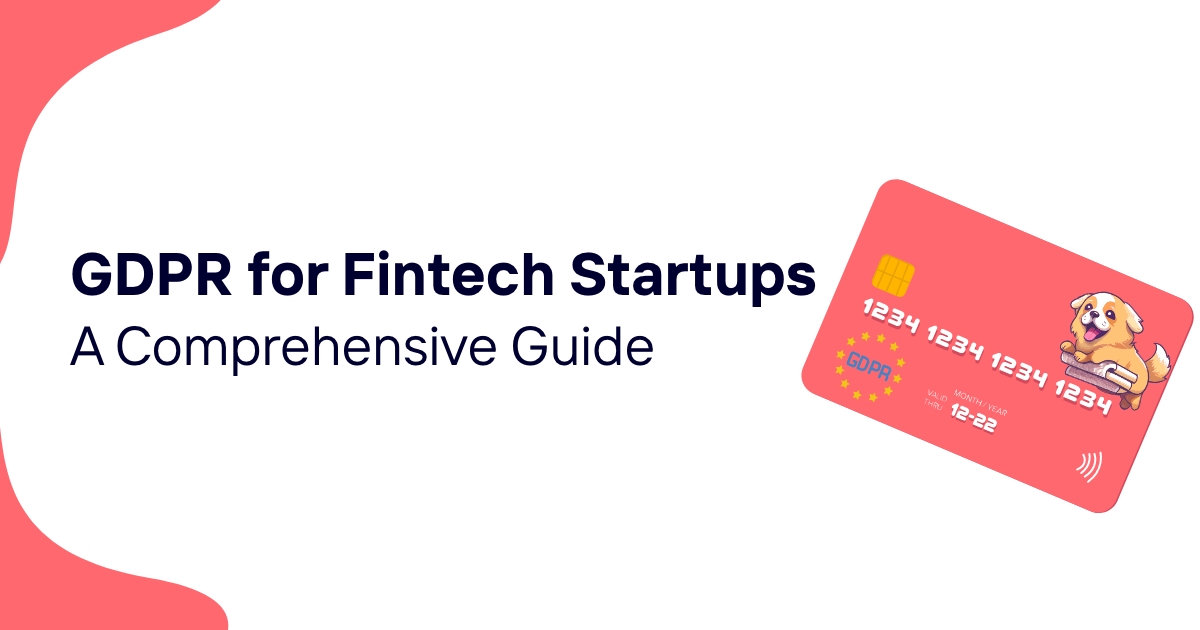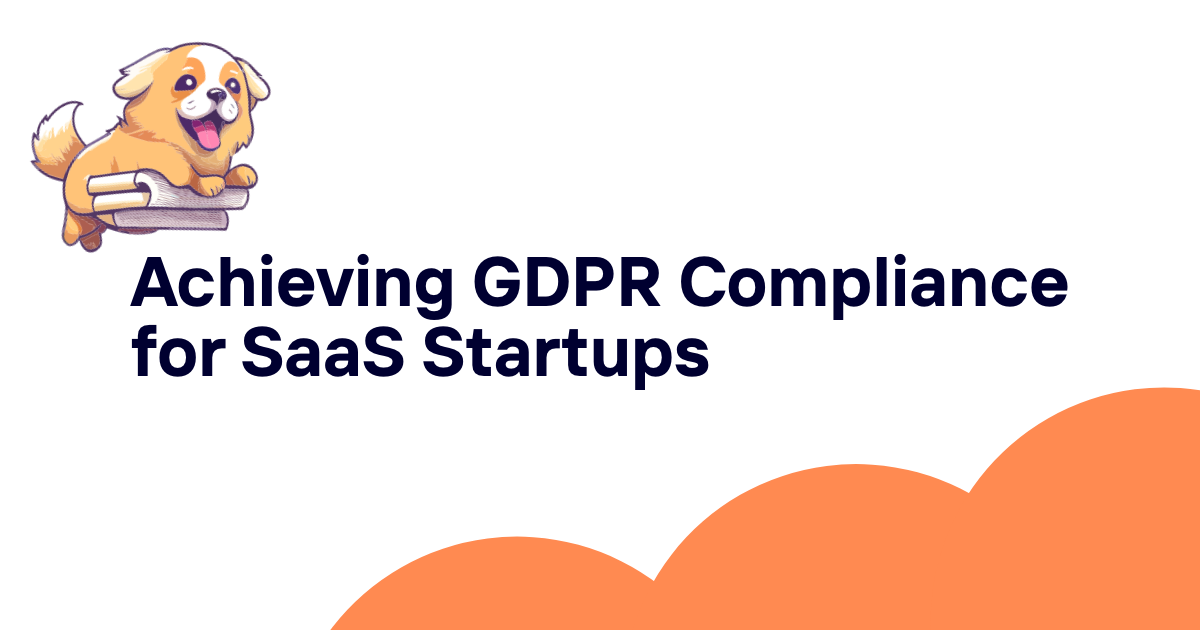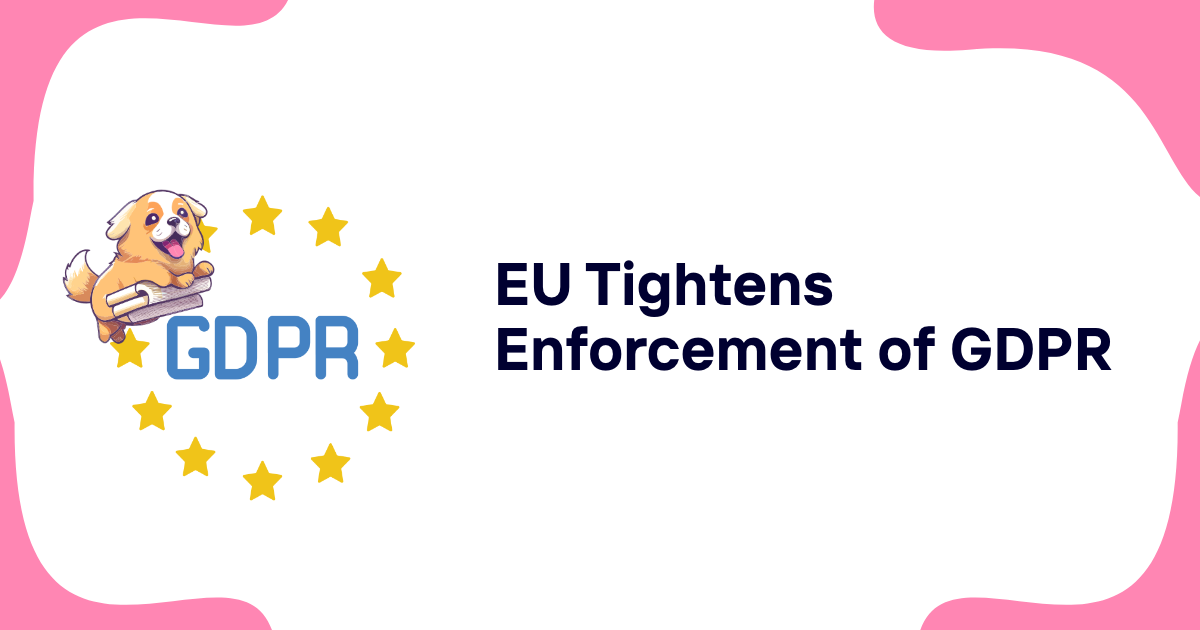Table of Contents
- Introduction
- Understanding the GDPR
- Key GDPR Principles
- Obtaining Valid Consent
- Data Subject Rights
- Data Breach Notification
- Appointing a Data Protection Officer (DPO)
- Conducting Data Protection Impact Assessments (DPIAs)
- Ensuring Vendor and Third-Party Compliance
- Implementing Robust Security Measures
- Maintaining Comprehensive Documentation
- Conclusion
Introduction
In the rapidly evolving landscape of financial technology (FinTech), data is the lifeblood that drives innovation and fuels growth. However, with the increasing concern over data privacy and security, regulatory bodies have taken proactive measures to safeguard the rights of individuals. The General Data Protection Regulation (GDPR), implemented by the European Union (EU) in 2018, has emerged as a game-changer for businesses operating in the digital realm, including FinTech startups.
This comprehensive guide aims to provide FinTech startups with a detailed understanding of the GDPR and its implications, ensuring compliance and fostering a culture of data protection within their organizations. By addressing the key principles, rights, and obligations outlined in the GDPR, this article empowers FinTech startups to navigate the intricate regulatory landscape and establish a solid foundation for responsible data handling practices.
Understanding the GDPR
The GDPR is a comprehensive set of regulations designed to protect the personal data of individuals within the European Union and the European Economic Area (EEA). It applies to any organization, regardless of its location, that processes the personal data of EU/EEA residents. The GDPR aims to harmonize data protection laws across the EU and give individuals greater control over their personal information.
For FinTech startups, the GDPR is particularly relevant as they often handle sensitive financial and personal data, making compliance a critical aspect of their operations. Failure to comply with the GDPR can result in substantial fines and reputational damage, underscoring the importance of proactive measures to ensure adherence to its principles.
Key GDPR Principles
The GDPR establishes several fundamental principles that FinTech startups must adhere to when processing personal data. These principles form the backbone of the regulation and serve as guiding principles for data protection practices.
Lawful Data Processing
Personal data can only be processed if there is a valid legal basis for doing so. The GDPR outlines six legal bases, including consent, contractual necessity, legal obligation, vital interests, public interest, and legitimate interests. FinTech startups must ensure that they have a valid legal basis for processing personal data and clearly communicate this basis to data subjects.
Data Minimization
FinTech startups should only collect and process personal data that is strictly necessary for the specified purpose. This principle encourages organizations to minimize the amount of personal data they collect and process, reducing the risk of data breaches and ensuring compliance with the GDPR.
Purpose Limitation
Personal data must be collected for specified, explicit, and legitimate purposes. It should not be processed in a manner that is incompatible with those purposes unless additional consent is obtained or a new legal basis is established.
Accuracy
FinTech startups must ensure that the personal data they process is accurate and up-to-date. Reasonable steps should be taken to correct or delete inaccurate or incomplete data.
Storage Limitation
Personal data should be kept for no longer than is necessary for the purposes for which it was collected. FinTech startups should implement data retention policies and procedures to ensure compliance with this principle.
Integrity and Confidentiality
Appropriate technical and organizational measures must be taken to ensure the security and confidentiality of personal data, protecting it from unauthorized access, accidental loss, destruction, or damage.
Accountability
FinTech startups are responsible for demonstrating compliance with the GDPR principles. This includes maintaining comprehensive documentation, implementing appropriate policies and procedures, and conducting regular audits and assessments.
Obtaining Valid Consent
One of the most significant aspects of the GDPR is the requirement to obtain valid consent from data subjects when processing their personal data. Consent must be freely given, specific, informed, and unambiguous. FinTech startups should ensure that their consent mechanisms meet the following criteria:
- Clear and concise language: Consent requests should be written in clear and plain language, avoiding complex legal jargon.
- Granular choices: Data subjects should be provided with granular choices, allowing them to consent to specific processing activities.
- Easy withdrawal: Individuals should be able to withdraw their consent as easily as they gave it.
- Record-keeping: FinTech startups must maintain records of consent, including when and how it was obtained.
Data Subject Rights
The GDPR grants individuals specific rights over their personal data, which FinTech startups must respect and facilitate. These rights include:
Right to Access
Individuals have the right to request access to their personal data held by a FinTech startup, including information about how it is processed.
Right to Rectification
Data subjects have the right to request the correction of inaccurate or incomplete personal data held by the FinTech startup.
Right to Erasure
Individuals can request the erasure of their personal data in certain circumstances, such as when the data is no longer necessary for the purposes it was collected or when consent is withdrawn.
Right to Restriction of Processing
Data subjects can request that the processing of their personal data be restricted in certain situations, such as when the accuracy of the data is contested or when the processing is unlawful.
Right to Data Portability
Individuals have the right to receive their personal data in a structured, commonly used, and machine-readable format, and to have it transferred to another controller if technically feasible.
Right to Object
Data subjects can object to the processing of their personal data for specific purposes, such as direct marketing or profiling, unless the FinTech startup can demonstrate compelling legitimate grounds for the processing.
Data Breach Notification
In the event of a personal data breach, FinTech startups are required to notify the relevant supervisory authority within 72 hours of becoming aware of the breach, unless the breach is unlikely to result in a risk to the rights and freedoms of individuals. Additionally, if the breach is likely to result in a high risk to the rights and freedoms of individuals, the FinTech startup must also inform the affected data subjects without undue delay.
Appointing a Data Protection Officer (DPO)
The GDPR mandates the appointment of a Data Protection Officer (DPO) in certain circumstances, such as when the core activities of the FinTech startup involve regular and systematic monitoring of data subjects on a large scale or the processing of sensitive data on a large scale. The DPO is responsible for overseeing the organization's compliance with the GDPR, providing advice and guidance, and serving as a point of contact for supervisory authorities and data subjects.
Conducting Data Protection Impact Assessments (DPIAs)
FinTech startups are required to conduct Data Protection Impact Assessments (DPIAs) for any high-risk processing activities that are likely to result in a high risk to the rights and freedoms of individuals. A DPIA is a structured process that evaluates the potential risks associated with data processing activities and identifies appropriate measures to mitigate those risks.
Ensuring Vendor and Third-Party Compliance
FinTech startups often rely on third-party vendors and service providers for various aspects of their operations, including data processing. Under the GDPR, FinTech startups are responsible for ensuring that their vendors and third-party partners comply with the regulation's requirements. This includes conducting due diligence, implementing appropriate contractual clauses, and regularly monitoring the vendor's data protection practices.
Implementing Robust Security Measures
The GDPR mandates that FinTech startups implement appropriate technical and organizational measures to ensure the security of personal data. This includes measures such as encryption, access controls, network security, and regular security testing and audits. FinTech startups should adopt a risk-based approach to security, considering the nature, scope, context, and purposes of data processing, as well as the risks to the rights and freedoms of individuals.
Maintaining Comprehensive Documentation
Accountability is a key principle of the GDPR, and FinTech startups must maintain comprehensive documentation to demonstrate their compliance efforts. This documentation should include:
- Data protection policies and procedures
- Records of data processing activities
- Data protection impact assessments
- Records of consent and other legal bases for processing
- Breach notification records
- Training records for employees and third-party partners
By maintaining comprehensive documentation, FinTech startups can demonstrate their commitment to data protection and be prepared for potential audits or investigations by supervisory authorities.
Conclusion
Compliance with the GDPR is not just a legal obligation for FinTech startups; it's a fundamental component of responsible data handling practices and a key factor in building trust with customers and stakeholders. By understanding the principles, rights, and obligations outlined in the GDPR, FinTech startups can navigate the complex regulatory landscape and position themselves as champions of data privacy and security.
Implementing robust data protection measures, fostering a culture of accountability, and continuously reviewing and updating practices are essential steps in ensuring long-term compliance. FinTech startups that embrace the GDPR's principles and prioritize data protection will not only mitigate risks but also gain a competitive advantage by demonstrating their commitment to safeguarding the personal data of their customers and partners.
Remember, the GDPR is not a static set of rules; it is a dynamic framework that requires ongoing vigilance and adaptation. By staying informed, seeking expert guidance, and proactively addressing data protection challenges, FinTech startups can thrive in the digital age while respecting the fundamental rights and freedoms of individuals.


















